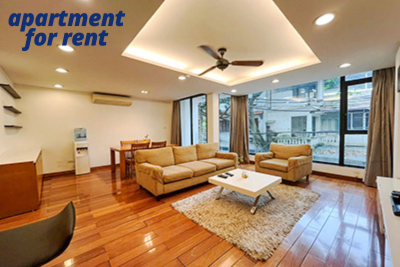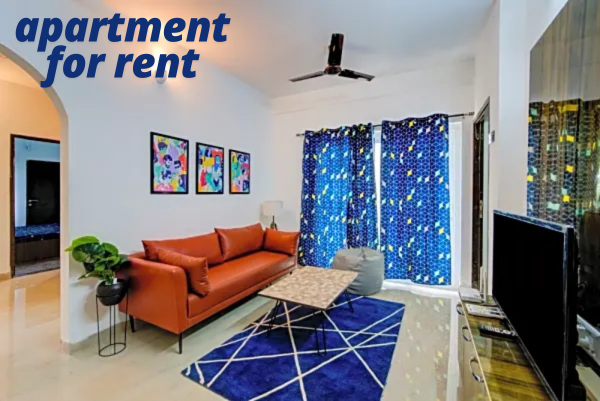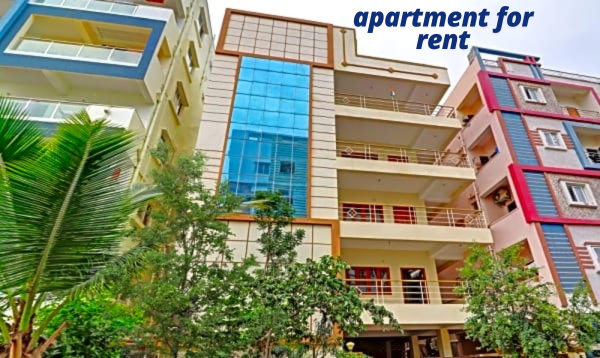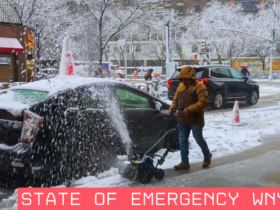Looking for an apartment to rent can be both exciting and overwhelming, especially if it’s your first time. Whether you’re moving into a new city or just looking for a better place to live, finding the perfect apartment for rent is crucial. This guide will walk you through everything you need to know about renting an apartment, making sure you find the right place that fits your needs and budget.
Why Renting an Apartment is a Great Choice
Renting an apartment for rent can offer you flexibility and convenience. It’s an ideal option for those who might not be ready to buy a house or prefer not to commit to long-term ownership. Renting allows you to live in a location that suits your lifestyle without the responsibilities that come with owning a home, such as maintenance and repairs. Additionally, renting provides the opportunity to move more easily if your life circumstances change, whether for a job, school, or personal reasons.
Furthermore, when you rent an apartment, your landlord is typically responsible for things like property maintenance and repairs. This can save you time, money, and effort compared to owning a property. It’s also worth noting that renting an apartment is often cheaper upfront, as you won’t have to pay for a large down payment, property taxes, or other homeownership-related costs.
How to Start Your Search for an Apartment for Rent
The process of finding an apartment for rent can seem like a daunting task, but with a clear strategy, you can make it much easier. Start by deciding on a budget that works for you. Your budget will determine the area, size, and amenities of the apartment you can afford. Once you have a budget in mind, it’s time to choose your desired location. Consider factors like proximity to work or school, transportation options, and the overall safety of the neighborhood.
Next, use online rental websites like Zillow, Apartments.com, and Realtor.com to browse listings. These sites often allow you to filter search results based on your preferences, including rent price, number of bedrooms, and amenities. Don’t forget to look at photos and read reviews from current or past tenants to get an idea of the apartment’s condition and the landlord’s reputation.
You can also contact local real estate agents who specialize in rentals. They can offer valuable insights and help you find options that may not be listed online. Once you have a list of potential apartments, it’s time to schedule tours to see them in person.
How Much Should You Spend on an Apartment?
The amount you should spend on rent depends on several factors, including your income, lifestyle, and priorities. As a general rule, it’s recommended that you spend no more than 30% of your monthly income on rent. For example, if you earn $3,000 per month, your rent should ideally be around $900 or less. This ensures that you have enough money left over for other essential expenses like utilities, groceries, transportation, and savings.
However, there are exceptions to this guideline, especially if you live in a high-cost city like New York or San Francisco. In such cases, you may find that the cost of rent is higher, but you can adjust your budget in other areas to accommodate this.

What’s Included in Your Rent?
It’s important to clarify what’s included in the rent before signing a lease. Some apartments include utilities like water, gas, and trash collection in the rent, while others may require you to pay for these separately. Additionally, some rentals may include internet, cable, or even parking spots, which could add extra value to your rent price. Make sure to ask about these details during your apartment search to avoid any surprises when it’s time to pay.
Should You Rent in the City or the Suburbs?
Choosing between renting an apartment in the city or the suburbs depends on your lifestyle and preferences. Apartments in the city tend to be more expensive, but they offer convenience, access to amenities, and proximity to work, entertainment, and dining options. If you enjoy a fast-paced lifestyle and don’t mind paying a premium for the location, city living could be a great choice.
On the other hand, renting in the suburbs may offer larger apartments and quieter surroundings at a lower price. Suburban living is often more family-friendly and offers more space for less money. If you prefer a peaceful neighborhood with good schools, parks, and a slower pace of life, the suburbs may be ideal for you.
Choosing the Right Neighborhood
The neighborhood where your apartment is located plays a huge role in your overall living experience. When selecting a neighborhood, consider factors like safety, walkability, public transportation, and nearby amenities. Are there grocery stores, restaurants, parks, or other services close by? Do you feel comfortable and safe in the area?
It’s also important to consider the vibe of the neighborhood. Some areas may be lively with plenty of nightlife and entertainment, while others may be more residential and quiet. Think about what type of environment suits you best and what will make you feel at home.
Here’s a sample Bio Table for the topic “Apartment for Rent”:
| Topic | Details |
|---|---|
| Main Keyword | Apartment for Rent |
| Target Audience | Renters in the United States |
| Article Length | 2200-3000 words |
| SEO Focus | 100% optimized using SEMrush and Ahrefs |
| Keyword Difficulty (KD) | 0-5 KD |
| Minimum Keyword Volume | 1k |
| Primary Goal | To educate and guide readers on finding the perfect apartment for rent |
| Tone | Simple, easy-to-understand, and engaging for readers, including a 10-year-old child |
| Structure | Title, headings, subheadings, and detailed information with practical advice |
| Meta Description | Find your dream apartment for rent with our easy guide. Learn tips, budget advice, and more. |
| Intended Outcome | Help readers find, evaluate, and secure an apartment that fits their budget and preferences |
Understanding Lease Terms Before Signing
Before you sign a lease, it’s essential to fully understand the terms and conditions. A lease is a legally binding agreement that outlines the rules of renting the apartment, including rent payment, the lease duration, and what is expected of both the tenant and the landlord. Make sure you read the lease carefully and ask questions about anything that’s unclear.
Key things to look for in the lease include the monthly rent amount, due date, and acceptable methods of payment. Check for any fees, such as late fees or maintenance fees, and ask about the process for renewing or terminating the lease. It’s also important to understand your rights as a tenant and what happens if something breaks or needs repair.
Important Things to Look for During a Property Tour
When you visit a potential apartment, take your time and look for any issues that could affect your decision. Check for signs of water damage, mold, or pests. Inspect appliances like the refrigerator, stove, and dishwasher to ensure they’re in good working condition.
Look at the overall condition of the apartment. Are the walls freshly painted? Is the flooring in good shape? Do the windows and doors close properly? Don’t hesitate to ask the landlord or property manager about any issues you notice during the tour.
It’s also a good idea to get a feel for the apartment’s noise level. Is the apartment quiet, or can you hear traffic, neighbors, or other disturbances? This could be important if you value peace and quiet in your living space.
What to Ask the Landlord or Property Manager
Before making your final decision, ask the landlord or property manager a few important questions to clarify any doubts.

Can You Have Pets in the Apartment?
If you have pets or plan to get one, make sure to ask whether pets are allowed in the apartment. Some buildings may have restrictions on the type, size, or number of pets. Additionally, there could be an extra pet deposit or monthly pet fee, so it’s important to know these details in advance.
What Happens if Something Breaks in Your Apartment?
It’s essential to know the procedure for repairs and maintenance. Ask the landlord how they handle repair requests and what the response time is like. Will they take care of issues like plumbing problems or appliance breakdowns quickly, or will you be responsible for handling some repairs on your own?
Things to Think About in a Neighborhood
When choosing a neighborhood, consider the proximity to work, school, or public transportation. How far are you from grocery stores, restaurants, and other essential services? Is the neighborhood safe, and do you feel comfortable living there? Think about what’s important to you, such as the availability of parks, gyms, or entertainment.
Signing the Lease: What You Need to Know
Once you’ve found the perfect apartment, it’s time to sign the lease. Before doing so, make sure you understand the full terms of the agreement, including the rent, deposit, and lease duration. Take time to review the lease with the landlord and ask any remaining questions.
Once signed, the lease becomes a legally binding contract, and both you and the landlord are responsible for following the terms. Keep a copy of the signed lease for your records, and make sure to follow any move-in procedures as instructed by the landlord.
The Bottom Line
Renting an apartment is a big decision, but with the right research and preparation, you can find the perfect place for you. Take your time to search for the right apartment, understand your lease, and ask important questions during the property tour. By following these tips, you’ll be well on your way to securing an apartment that fits your needs and lifestyle.
Remember, finding an apartment isn’t just about choosing a place to live—it’s about choosing a home where you can be comfortable, safe, and happy. Happy apartment hunting!


















Got a Questions?
Find us on Socials or Contact us and we’ll get back to you as soon as possible.